Mercy Arrow
Lakes, that is!
On this trip we took two ferry rides, both of them across the Arrow Lakes.
First from west to east, from Fauquier (‘fo-key-ay’) to Needles. There is nothing but a rest stop at each of these ferry docks, if you can call them docks, and they’re each about 50 km from the nearest center. The ride at this crossing is only about 10 minutes, on a cable-pulled ferry that only holds a dozen or so vehicles.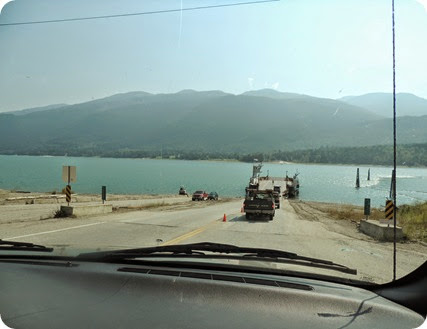

A few days later, from east to west, from Galena Bay to Shelter Bay. At Galena Bay there’s construction happening, and not even a rest stop. At Shelter Bay, the road is obviously newly paved and possibly widened, and there’s a parking lot and a small coffee stand. Again, the docks aren’t much to speak of, and each is about 50 km from the nearest center. This second crossing was about 25 minutes on a motorized ferry that unloaded 5 or 6 semi-rigs, a few RVs and 20 or so cars/pickup trucks.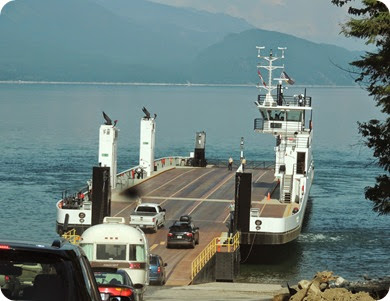
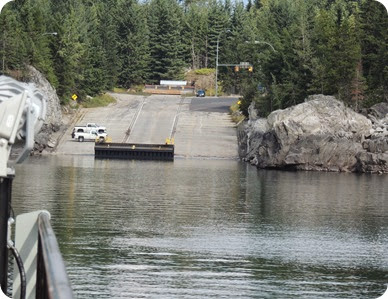
These ferries are an absolute necessity on Highway 23 to serve the communities between Revelstoke on the north and Castlegar on the south, and to connect Hwy 23 going south from Revelstoke with Hwy 6 going west toward Vernon and Kelowna.
But there is an interesting history behind these ferry routes that are relatively new additions to the highway system in BC. The Arrow Lakes, Upper and Lower, essentially a widening of the Columbia River, were formed because of the dams built on the Columbia River as a result of a treaty between Canada and the US for development of hydro power for both countries. In the 1960’s, these dams flooded much of the valley along this stretch of the Columbia River in south eastern BC, forming the lakes as a result. But it was at great cost to the lives of the people here. Much arable land was sacrificed, along with the homes and livelihoods of hundreds of people. The people were compensated for their houses and lands, at least for the ‘real’ price, and were relocated. But the social, economical, psychological price could not be compensated as they were uprooted from their homes and way of life.
This is all now remote, and what we’re left with is a system of hydro power that has served our province well for several decades – as well as beautiful lakes amid the mountains that serve practically as well as yield much recreation and enjoyment.
Happy river travels! Blessings, Peg
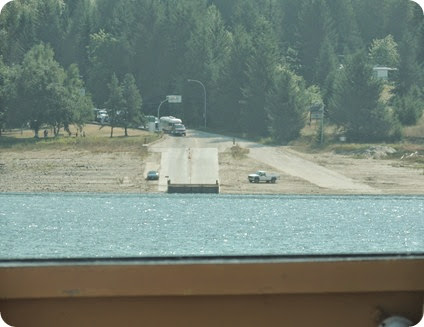
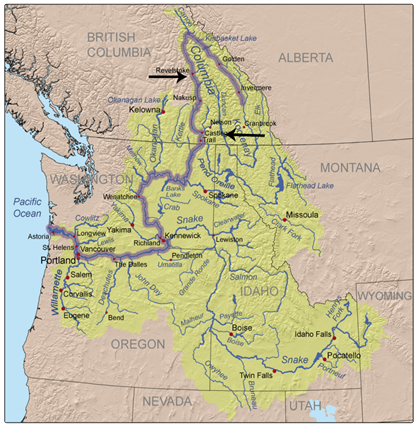
No comments:
Post a Comment